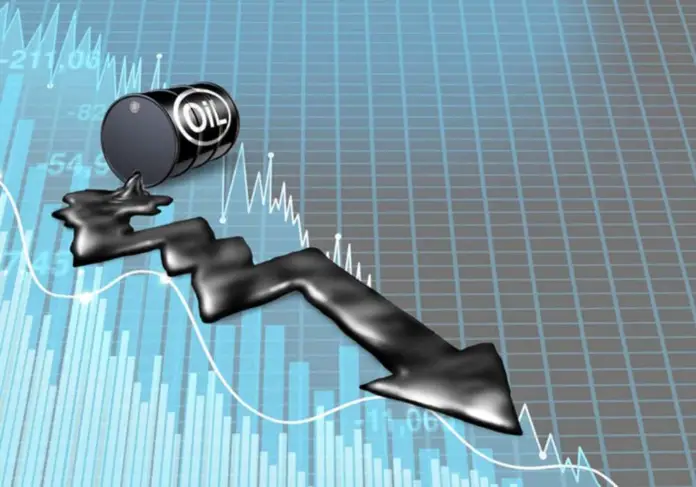Crude oil prices fell over three percent on Tuesday amid concerns over Omicron Coronavirus variant and its impact on oil demand.
At 1415 hours GMT, Brent, the international benchmark for two-thirds of the world’s oil, shed US $2.64 (-3.59 percent) to reach $70.80 a barrel. Similarly, the US West Texas Intermediate (WTI) price reached $67.40 a barrel, down by $2.55 (-3.65 percent).
The price for Opec Basket was recorded at $76.09 a barrel with a decrease of 6.42 percent, Arab Light was available at $73.36 with 3.60 percent decrease, and the price of Russian Sokol slipped to $72.80 with a decrease of 5.28 percent.
Crude oil futures posted sharp losses as the World Health Organisation said the new Omicron variant posed a high global risk, and a major pharmaceuticals company said currently available COVID-19 vaccines were less effective against it. Oil prices posted losses once again and almost completely eliminated the partial gains of the previous day, bringing current levels close to the November 26 close. The main trigger for the more bearish sentiment were the comments made by Moderna’s chief regarding current vaccines’ efficacy being limited against the Omicron variant, adding that development and production of a more effective version could take months.
Meanwhile, all eyes are on the OPEC+ meeting scheduled for December 2, which could decide not to increase further crude supply temporarily according to the previously decided levels. The cartel’s original meeting was postponed from its initial date to allow more time for further information regarding the recent market developments to be processed. Additionally, a clause in the current agreement exists, stipulating a potential pause of the decided supply increase for up to three months, if current market conditions change.
At the same time, the market has already shown concerns over the previous weeks regarding a potential oversupply in 2022, while demand forecasts could have been too bullish, contributing as well to the recent pressure for oil prices.







